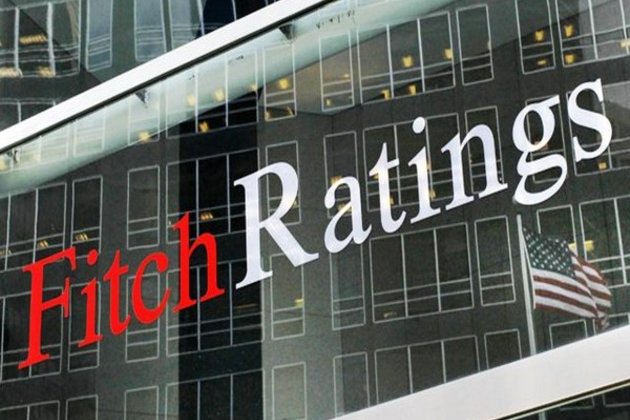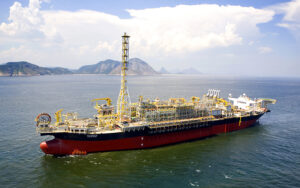
(Fitch Ratings, 17.Apr.2020) — Fitch Ratings has downgraded the international Foreign- and Local-Currency Long-Term ratings for Petroleos Mexicanos (PEMEX), Comision Federal de Electricidad (CFE), Infraestructura Energetica Nova, S. A. B. de C. V. y Subsidiarias’ (IEnova) and Cometa Energia, S. A. de C. V. following this week’s downgrade of Mexico’s sovereign rating to ‘BBB-/OS’ from ‘BBB/OS’. Fitch has also affirmed El Puerto de Liverpool S.A.B. de C.V.’s (Liverpool) ratings and revised its Rating Outlook to Stable from Positive as a result of Mexico’s Country Ceiling downgrade to ‘BBB+’ from ‘A-‘. Fitch has also revised PEMEX’s Rating Outlook to Stable from Negative. The rating actions only affect international ratings.
PEMEX and CFE’s rating downgrades reflect these companies’ direct linkage to Mexico’s sovereign ratings, per Fitch’s government-related entities (GRE) methodology. PEMEX’s ratings are three notches below those of the sovereign as a result of the continued deterioration of its stand-alone credit profile (SCP) to ‘ccc-‘ amid the downturn in the global oil and gas industry, Fitch’s lower oil price assumptions and the weakening credit linkage between Mexico and PEMEX. PEMEX’s SCP deterioration reflects the company’s limited flexibility to navigate the downturn in the oil and gas industry given its elevated tax burden, high leverage, rising per-barrel lifting costs and high investment needs to maintain production and replenish reserves. CFE’s ratings are equalized to those of Mexico given its strong linkage to the government and the company’s SCP of ‘bb’.
The rating downgrades of IEnova and Cometa reflect the increased counterparty risk on their credit profile since GREs represent a high portion of both companies’ cash flow. CFE, PEMEX and CENAGAS (NR) represent around 45%-50% of IEnova’s EBITDA, while CFE and CENAGAS represent around 50% of Cometa’s revenues. Additional negative rating actions on GREs will factor in IEnova and Cometa’s ratings.
Liverpool’s Rating Outlook was revised to Stable from Positive following the downgrade of Mexico’s Country Ceiling to ‘BBB+’. Liverpool’s Foreign-Currency IDR is constrained by Mexico’s Country Ceiling as operations are concentrated in Mexico and linked to Mexico’s economic performance. Additional negative rating actions on Mexico’s Country Ceiling will factor in Liverpool’s ratings.
KEY RATING DRIVERS
Mexico’s sovereign rating downgrade reflects the economic shock represented by the coronavirus pandemic, which will lead to a severe recession in Mexico in 2020. A recovery starting in 2H20 will likely be held back by the same factors that have hampered recent economic performance, which has lagged that of rating and income-level peers. These include a previously noted deterioration in the business climate in certain sectors – notwithstanding examples of cooperation with the private sector in areas such as developing infrastructure – and a perceived erosion of institutional strength in the regulatory framework. In line with its April 2 “Global Economic Outlook” update, Fitch expects the economy to contract by at least 4% in 2020, with a steep fall in 1H20 followed by the start of a sequential recovery in 2H20, but given the nature of the crisis, there is a higher than usual level of uncertainty around our forecasts, and the balance of risks is firmly to the downside.
Even in the absence of a debt-financed fiscal response to the economic recession, general government debt/GDP is likely to jump by at least 6pp of GDP to almost 50%, the highest since the 1980s. Consolidating public finances once the crisis is over and returning debt/GDP to a sustainable path will prove challenging in Fitch’s view. At the same time, the credible monetary policy framework built around a flexible exchange rate and inflation targeting remains a rating strength and will help the economy absorb the external shock, while minimizing current account external imbalances.
ESG — Governance: Fitch considers PEMEX’s corporate governance weak given the continued high level of government interference in the company’s strategy, financing and management changes with changes in administration. PEMEX is also exposed to social and community relationships in its area of influence, as it has been afflicted by pipelines ruptures.
CFE has an ESG Relevance Score of 4 for Governance Structure due to board independence and effectiveness, which has a negative impact on the credit profile, and is relevant to the ratings in conjunction with other factors. Also, CFE has an ESG Relevance Score of 4 for Financial Transparency due to the quality and timing of financial disclosure, which has a negative impact on the credit profile, and is relevant to the ratings in conjunction with other factors.
RATING SENSITIVITIES
PEMEX
Developments that May, Individually or Collectively, Lead to Positive Rating Action:
–An upgrade of Mexico’s sovereign ratings.
–An irrevocable guarantee from Mexico’s government of sustainably more than 75% of PEMEX’s debt.
–A material capitalization, coupled with a material reduction of PEMEX taxes, together with a business plan that results in neutral to positive FCF through the cycle, while implementing a sustainable upstream capex that is sufficient to replace 100% of reserve and stabilize production profitably.
–A sustainable FFO-adjusted leverage below 5.0x.
Developments that May, Individually or Collectively, Lead to Negative Rating Action:
–A downgrade of Mexico’s sovereign rating.
–A sustained deterioration of PEMEX’s financial flexibility, coupled with government inaction to support liquidity. This could result from continued negative FCF and/or a material reduction of the company’s cash on hand, credit facilities and/or restricted capital markets access.
CFE
Developments that May, Individually or Collectively, Lead to Positive Rating Action:
–An upgrade of CFE’s ratings could result from an upgrade of the sovereign.
Developments that May, Individually or Collectively, Lead to Negative Rating Action:
–A downgrade of the sovereign’s rating.
–The perception of a lower degree of linkage between CFE and the sovereign, coupled with weakening operating and financial profile.
IEnova
Developments that May, Individually or Collectively, Lead to Positive Rating Action:
–Although a positive rating action is not expected in the short or medium term, it could be considered if total debt to EBITDA is below 4.0x on a sustained basis, combined with an upgrade of its main off-takers (CFE, PEMEX and CENAGAS) and stronger operating and regulatory environments.
Developments that May, Individually or Collectively, Lead to Negative Rating Action:
–Total debt to EBITDA above 4.5x on a sustained basis, which could occur if the company adopts an aggressive dividend policy, implements aggressive expansion plans financed by debt or fails to execute on its refinancing strategy.
–Adverse changes to the regulatory and operating environment, reflected by CFE pursuing actions against market participants, or a failure to diversify its client base, resulting in reduced cash flow predictability.
–A downgrade of CFE or Mexican sovereign rating.
Cometa Energia
Developments that May, Individually or Collectively, Lead to Positive Rating Action:
–Although a positive rating action is not expected in the short or medium term, it could be considered with a positive rating action on CFE.
–It could also be considered if the company increases its contracted position with investment-grade counterparties, other than GREs, while maintaining strong contract terms.
Developments that May, Individually or Collectively, Lead to Negative Rating Action:
–Material deterioration on its contractual position, represented by exposure to volume risk signed with lower-rated counterparties.
–A negative rating action on CFE’s ratings.
–Failure to deleverage, measured by total debt/ EBITDA toward 3.5x by 2023.
El Puerto de Liverpool
Developments that May, Individually or Collectively, Lead to Positive Rating Action:
–Although a positive rating action is not expected, one could be considered as a result of an upgrade of Mexico’s Country Ceiling and Liverpool maintaining strong operating cash generation, a consolidated adjusted debt/EBITDAR ratio consistently below 2.5x, a retail-only gross adjusted (for captive finance) leverage consistently below 1.5x and steadily positive FCF throughout the business cycle and a successful integration with Suburbia.
Developments that May, Individually or Collectively, Lead to Negative Rating Action:
–A one-notch downgrade in Mexico’s sovereign Country Ceiling could result in a downgrade.
–Factors that can influence a downgrade in the rating includes an expansion strategy financed primarily with debt, a sustained consolidated adjusted leverage ratio (gross adjusted debt/EBITDAR) above 3.5x, a retail-only gross adjusted (for captive finance) leverage consistently above 2.5x, sustained negative free cash flow (FCF) below Fitch’s expectations, a substantial deterioration in non-performing receivables (more than 90 days) and lower profitability margins.
BEST/WORST CASE RATING SCENARIO
International scale credit ratings of Non-Financial Corporate issuers have a best-case rating upgrade scenario (defined as the 99th percentile of rating transitions, measured in a positive direction) of three notches over a three-year rating horizon; and a worst-case rating downgrade scenario (defined as the 99th percentile of rating transitions, measured in a negative direction) of four notches over three years. The complete span of best- and worst-case scenario credit ratings for all rating categories ranges from ‘AAA’ to ‘D’. Best- and worst-case scenario credit ratings are based on historical performance. For more information about the methodology used to determine sector-specific best- and worst-case scenario credit ratings, visit https://www.fitchratings.com/site/re/10111579.
REFERENCES FOR SUBSTANTIALLY MATERIAL SOURCE CITED AS KEY DRIVER OF RATING
The principal sources of information used in the analysis are described in the Applicable Criteria.
PUBLIC RATINGS WITH CREDIT LINKAGE TO OTHER RATINGS
Cometa is indirectly linked to the rating of Mexico’s sovereign rating as CFE is its main offtaker. IEnova is indirectly linked to Mexico’s sovereign as the GREs are its main offtakers. PEMEX and CFE are directly linked to the sovereign rating.
ESG CONSIDERATIONS
PEMEX has an ESG Relevance Score of 4 for Community Relations & Social Access (SCR) as oil and gas production companies are typically exposed to social and community relationship issues in their area of influence.
PEMEX has an ESG Relevance Score of 4 for Governance Structure (GGV) resulting from its nature as a majority government-owned entity and the inherent governance risk that arises with a dominant state shareholder.
CFE has an ESG Relevance Score of 4 for Governance Structure due to board independence and effectiveness, which has a negative impact on the credit profile, and is relevant to the ratings in conjunction with other factors. Also, CFE has an ESG Relevance Score of 4 for Financial Transparency due to the quality and timing of financial disclosure, which has a negative impact on the credit profile, and is relevant to the ratings in conjunction with other factors.
Except for the matters discussed above, the highest level of ESG credit relevance, if present, is a score of 3. ESG issues are credit neutral or have only a minimal credit impact on the entity(ies), either due to their nature or the way in which they are being managed by the entity(ies). For more information on Fitch’s ESG Relevance Scores, visit www.fitchratings.com/esg.
***

